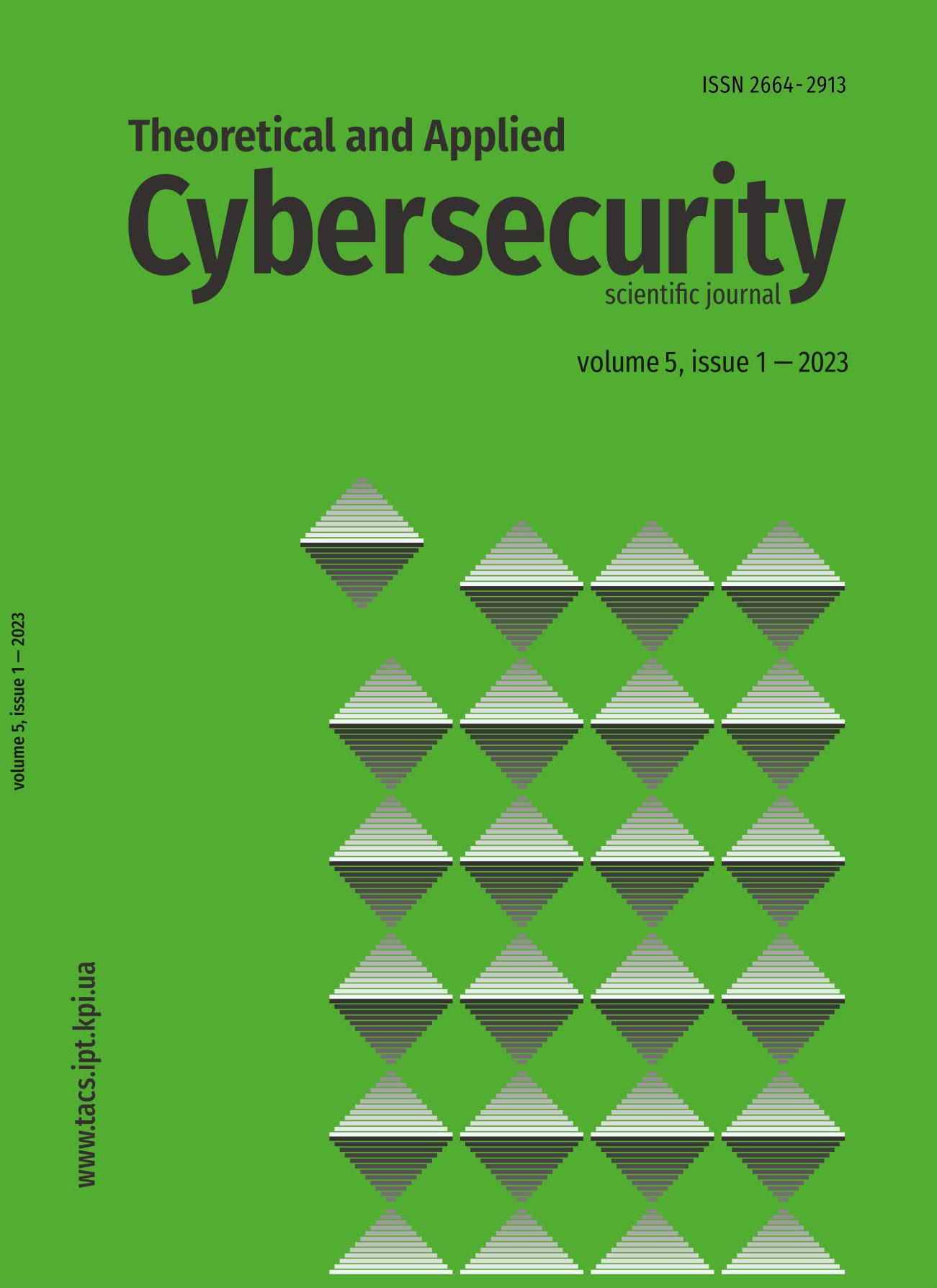Analysis of the core research for vendor email compromise filtering model using machine learning
DOI:
https://doi.org/10.20535/tacs.2664-29132023.1.284121Abstract
Vendor email compromise became one of most sophisticated types of social engineering attacks. Strengths of this malicious activity rely on basis of impersonating vendor that company working with. Thus, it is easy for attacker to exploit this trust for doing different type of data exfiltration or ransom. To mitigate risks, that come with these challenges, information security specialist should consider using different types of approaches, including machine learning, to identify anomalies in email, so further damages can be prevented. The purpose of this work lies in the identification of optimal approach for VEC-style attacks detection and optimizing these approaches with least amount of false-positive (FP) parameters. The object of this research is different methods of text processing algorithms, including machine learning methods for detecting VEC emails. The subject of research in this paper mainly considers impact of mentioned text processing algorithms and its relation with efficiency of VEC email classification, identifying most effective approach and, also, how to improve results of such detections. Results of this paper consists of details for VEC-email attacks detection, challenges that comes with different approaches and proposed solution, that lies in using text processing techniques and agent-related approach with main sphere of implication – machine-learning systems, that are used for identifying social-engineering attacks through email.
Downloads
Published
Issue
Section
License
Authors who publish with this journal agree to the following terms:
Authors retain copyright and grant the journal right of first publication with the work simultaneously licensed under a Creative Commons Attribution License that allows others to share the work with an acknowledgement of the work's authorship and initial publication in this journal.
Authors are able to enter into separate, additional contractual arrangements for the non-exclusive distribution of the journal's published version of the work (e.g., post it to an institutional repository or publish it in a book), with an acknowledgement of its initial publication in this journal.
- Authors are permitted and encouraged to post their work online (e.g., in institutional repositories or on their website) prior to and during the submission process, as it can lead to productive exchanges, as well as earlier and greater citation of published work (See The Effect of Open Access).

